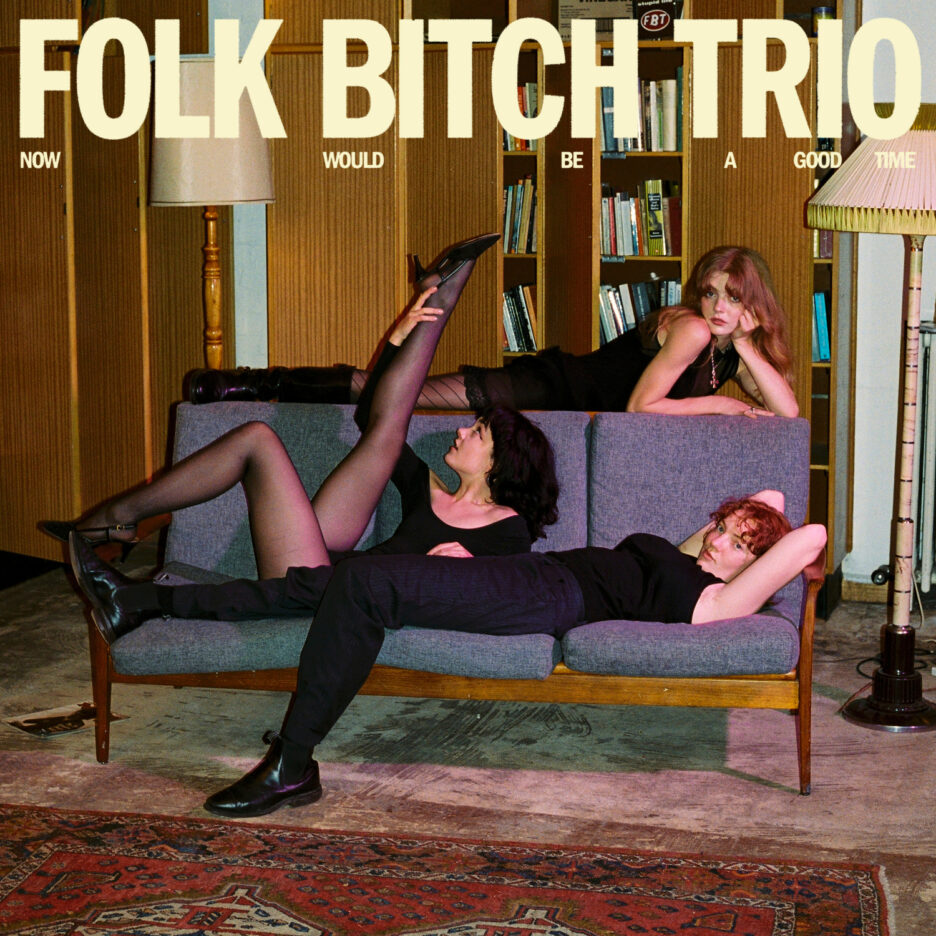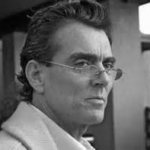Melbourne/Naarm’s Folk Bitch Trio deliver a breathtaking debut with Now Would Be A Good Time, a record that gracefully blends classic folk foundations with the grit and shimmer of indie rock. It’s a collection that feels both timeless and startlingly present — like déjà vu wrapped in fresh emotion, or a memory you’re only just now remembering.
Comprised of Heide Peverelle (they/them), Jeanie Pilkington (she/her), and Gracie Sinclair (she/her), the trio’s name — cheeky, sharp, and a little confrontational — signals a subversive edge not often associated with folk music. It’s a fitting moniker for a band whose music embraces both delicacy and defiance.
The album, recorded to tape and produced by Tom Healy, leans into analogue warmth, allowing every harmonic detail, every crack in the voice or whisper of a string, to bloom naturally. Their three-part harmonies are the album’s emotional anchor: lush, inventive, and at times devastating in their intimacy.
Among the ten tracks, several stand out immediately. “God’s A Different Sword” opens the album with a gently swaying rhythm, driven by acoustic strums and vocals that glide effortlessly between serenity and melancholy. It’s a stunning introduction, immersive and texturally rich. “The Actor” channels a soft-focus ‘60s haze — dreamy and diaphanous, with glistening instrumentation and harmonies that shine like chrome. It’s folk, but with a cinematic shimmer.
A standout moment of vulnerability arrives with “Moth Song,” a delicate, trembling piece featuring the haunting violin of Anita Clark. It floats like a hallucination, flickering with the ache of unreciprocated love. “It’s about being so spun out by everything that you feel like you’re delusional,” the band says — and the music captures that feeling with fragile beauty.
“I’ll Find A Way,” an a cappella track, is breathtaking in its simplicity and grace. Elegant and deeply human, it’s the kind of song that stops you in your tracks. Then there’s “Cathode Ray,” an atmospheric, slow-burning highlight that evokes the ghostly sensuality of Chris Isaak with the brooding introspection of Pink Floyd. Sinclair describes it as a visceral expression of frustration and entrapment — and you can hear every ounce of that in her delivery.
The album closes with “Mary’s Playing the Harp,” a stark, heartbroken lament set against the vast backdrop of touring Australia. With only a single guitar and their entwined voices, the trio summon a mood of aching stillness and emotional clarity.
Now Would Be A Good Time is a remarkable debut: emotionally intelligent, sonically adventurous, and powered by some of the finest vocal work you’ll hear this year. With its elegant arrangements, wry lyricism, and unwavering honesty, it’s easily one of the standout releases of 2025.


Be the first to comment